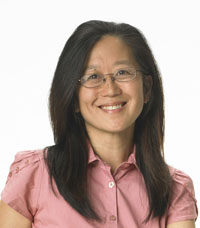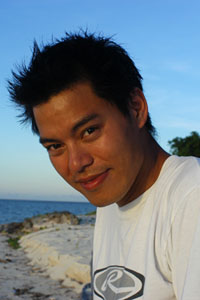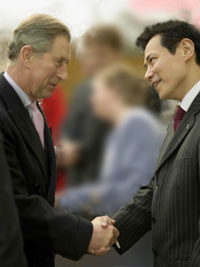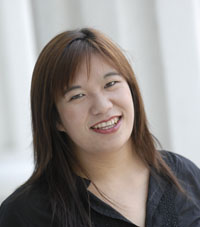| Making waves the British Chinese way |

|

|

|
| Features | ||||||||||||||||||||||||||||||||||||||||||||||||||||||||||||||||||||||||||||||||||||||||||||||||||||||||||||||||||||||||||||||||||||||||||
| Friday, 30 November 2007 | ||||||||||||||||||||||||||||||||||||||||||||||||||||||||||||||||||||||||||||||||||||||||||||||||||||||||||||||||||||||||||||||||||||||||||
|
“Example has more followers than reason.” Christian Nestell Bovee, American author and lawyer (1820-1904) Having said we need more British Chinese role models, who are the trailblazers out there? I went online and found a list of prominent people of Chinese ancestry listed on Wikipedia, and set out to make contact with them to ask them their views on role models. http://en.wikipedia.org/wiki/List_of_British_Chinese_people Many of the people listed in Wikipedia were born overseas and settled in the UK as adults. I wanted to track down those who were born in the UK or came to UK as children, so effectively grew up as BBCs, because they’re my reference group when I say we need more home-grown Chinese role models. I asked some of my extended family and BBC friends whether they’d heard of any of the four people I profile below and there was low recognition of their names. Have you heard of them? These four people aren’t movie stars and you won’t find them in your favourite soap opera or rock band, but they do work in areas or pursue activities, which haven’t been explored by many Chinese. They are breaking new grounds and breaking old stereotypes. Perhaps, they’ve been lucky in their careers, in the right place at the right time, but one thing is for sure they’re making their voices heard in mainstream society. We need to get to know their names and be inspired by them, so we can believe what’s possible.
For over 20 years, Valerie Chang has worked as a creator, producer, arts manager and consultant specialising in the visual arts, heritage sector, Chinese arts and culture and cross-cultural art festivals. She established her own Arts Consultancy in 1999. http://www.valeriechang.com/ Valerie was born in Kampala, the capital of Uganda in East Africa. Her parents ran a successful photography business there and Valerie and her siblings went to an English school. The family moved to Birmingham, England in the mid 1960s and Valerie went to secondary school in the Midlands and it was here she began her studies in Fine Art & Design. She went on to get her first degree in Fine Art and Design from Bradford College of Arts followed by a postgraduate Certificate in Art Education from Brighton Polytechnic and later, after studying and working in the cultural arts sector in London for a number of years, she received her MA in Museum and Gallery Management from City University. She has curated international and national exhibitions at the South London Gallery and Pitzhanger Manor & Gallery, and has led or partnered with others experts on major projects for commercial and public art galleries, museums, local authorities, educational institutions and private sector. For example, in 2006, she was commissioned to promote and market the “China: The Three Emperors” exhibition for the Royal Academy of Arts in London with a view to engage the Chinese community UK-wide. Her latest contract is at the Horniman Museum where she’s developing a Chinese community arts project that will respond to HM Chinese collection of textiles 19thCentury. She continues to campaign for the truth about what really happened to her brother, Richard Chang, a Senior IT Business Analyst for Abbey National Bank, who is said to have jumped to his death from the 5thfloor of the Bank’s Headquarters on 13th July, 2004. http://www.justice4richard.co.uk/
In May 2004, Dr. Kevin Fong featured in a list of “The 100 Most Influential Men in Britain Under 40” compiled by the men’s magazine “Esquire.” As the UK’s foremost expert in space medicine, having worked with NASA and the European Space Agency, he’s very much in demand in an advisory capacity in his field and on television shows, such as “Superhuman” for Channel 4. And all of this is on top of his work as Specialist Registrar in Anaesthesia and Intensive Care Medicine at University College London Hospitals and Honorary Lecturer in Physiology at University College London. Kevin was born at the start of the 1970s and spent his boyhood in South Harrow in North West London. His parents grew up in Mauritius (his father is Hakka Chinese from Guangdong and his mother is of Chinese and French descent) and they came to the UK in the early 1960s. As far as Kevin can tell, they were the second Chinese family to move into the area: the first owned the local Chinese takeaway. Kevin and his brother were amongst the first Chinese children to go to their schools. Looking back at his parents’ achievements, Kevin recounts that his father was a frustrated scientist who completed his higher education through a correspondence course while working as a backroom clerk at a large company. His parents both worked at low grades in the Civil Service. Kevin credits his parents’ endeavours over the years as the spur, which gave him and his brother the right encouragement to go forward with their goals. He’s definitely made the most of his educational opportunities by getting degree in Astrophysics and Medicine, and fulfils his long-standing interest in human space exploration and medicine through his research (on the body’s reaction to long duration space missions) at the Centre for Aviation, Space and Extreme environment medicine (CASE) at University College London, which he co-founded in 2000. http://www.guardian.co.uk/science/2007/jan/06/spaceexploration.uknews http://www.channel4.com/science/microsites/S/superhuman/experts/kfong/kfong.html
Dalton Leong says he’s achieved his “dream job” as the Chief Executive of The Shooting Star Children’s Hospice, a charity raising funds to run the much-needed children’s hospice, Shooting Star House, for the free care and support of children and young people living with a life-limiting condition and their families. After a career in the private sector (banking and financial services) in which he reached a senior position at the head office, he moved into the Not-for-Profit Sector. He’s not sure whether his mother was as enthusiastic about his move as she thought banking was a safe route for a successful BBC man. Dalton’s family originates from Guangdong in Southern China. Typical of the times, his grandparents moved to another country, South Africa, for what turned out to be a very different life. His father, a butcher by trade, set up a shop in London, which his mother helped run, when his parents emigrated from South Africa to England in the 1960s. Their motive for moving to England was the “improved westernised” education their three children would receive. Dalton was born a year after his parents settled in London. Like many other first-generation-born BBCs, Dalton was only one of a few Chinese boys at his schools and that was including his brothers. His parents worked long hours at their shop to make it a viable concern, but tragically his father died just two weeks after Dalton’s 11thbirthday. His mother continued to run the shop for two years after his father’s death, but the odds were stacked against her, a Chinese woman in her 40s – a single parent of four teenage children – owning a butcher’s shop in the mid-1970s. During those years, Dalton became worldly-wise and, always, felt different to his English friends, not least because his life after school each day consisted of going home to scrub the bloody wooden butcher blocks and sweep the sawdust from the floor. On a daily basis in his job, Dalton meets with families of children who are not expected to reach adulthood and those experiences put many things into perspective for him. The Shooting Star Children’s Hospice receives no statutory funding. Hence, it was a huge achievement when London’s newest children’s hospice, Shooting Star House, near Hampton Court Palace, was officially opened on 21st February, 2006 by TRH The Prince of Wales and The Duchess of Cornwall – a culmination of a 10-year commitment from the people who work for the charity and the volunteers and patrons who raised the money for the building. The Who’s Who of patrons of the Shooting Star Trust includes Samantha Bond, Joan Collins OBE, Richard E. Grant and Sir Trevor MacDonald, OBE. Their support, along with many others, help to secure the £2.5 million a year needed to maintain the care service provisions. Dalton’s aim is to keep going with fundraising for the Trust so none of the momentum is lost. http://www.shootingstar.org.uk/
Do you know the name of the first published British-born Chinese author? That would be Helen Tse whose book “Sweet Mandarin” was published in the UK by Ebury Press on 1stFebruary, 2007. Helen set out to write a cookery book, but her publishers had other ideas. The result, a family autobiography in which Helen tells the story of three generations of remarkable women by following the journey of her grandmother, Lily Kwok, from 1920s rural China to present-day Manchester and in between there’s murder, gambling addiction and many set-backs, all tied together by the love of food. Helen was born and bred in Manchester and grew up above a “chippy” in the backs streets of Manchester in the late 1970s and 1980s. She studied law at Cambridge University before moving into finance in London and Hong Kong. In November of 2004, Helen and her two sisters, Lisa and Janet Tse, opened their modern Pan Asian restaurant “Sweet Mandarin” in Manchester’s bohemian Northern Quarter. The restaurant has gained a fast-growing reputation and a celebrity following through its fresh, contemporary feel and modern Chinese cuisine. As the third generation of women restaurateurs, Helen, Lisa and Janet Tse, three twenty-somethings, have brought the family full circle, regaining much that was gambled away when Lily Kwok lost her restaurant and money to the Manchester casinos. Writing her family’s story has led to a ripple effect of interest for Helen and her sisters. “Sweet Mandarin” (the book) is now sold in 33 countries and being adapted for a major BBC television dramatization to be shown in 40 countries in August, 2008. It’s, also, being adopted as a text book in schools in the UK, Hong Kong and China as part of the curriculum for children aged 13-16 years. http://www.sweetmandarin.com/index.html http://www.bbc.co.uk/manchester/content/articles/2007/02/01/ 010207_sweet_mandarin_feature.shtml Questions AND Answers I put the following questions to Valerie, Kevin, Dalton and Helen, and under each question, I give a flavour of their answers: Who were your role models growing up (both Chinese and non-Chinese) and how did they inspire you? Valerie: “Artists; I didn’t have any Chinese ones at the time. My passion was art.” Kevin: “I had few Chinese role models; I was aware of Bruce Lee, but my role models were astronauts. It was the Apollo era – a late summer’s night in 1975 and my parents woke me up to watch a US Apollo module docking with a Russian Soyuz spacecraft and that was the start of my interest in science.” Dalton: He says of his father who died just after Dalton turned 11, “He has been a true inspiration on my life – the words that spring to mind when I think of him are ‘hard work’ and ‘integrity.’ Anyone that can go through life with these values at the heart of all they do can go far.” And of his mother, he salutes her courage, “A remarkable achievement from a truly inspirational and popular person. Now, in retirement, it’s sometimes difficult to get time with my Mum as the phone doesn’t often leave her ear, she has so many friends.” Helen: “My grandma and my mother. They are strong, independent women who really sacrificed a lot for us and gave us a chance in the world. I was, also, a Ken Hom fan – loved anything to do with cooking and food and he was the only representation of Chinese people that is even today prominent in the media.” As British-born or British-raised Chinese in our late 20s, 30s and 40s, why don't we shout out to the world about our successes? What more can we do within our own community and society at large to create a more visible image? Valerie: “There are not enough of us; some are too passive and others not interested. We need more people getting their stories heard in the media, through articles, documentaries and TVU programmes.” Dalton: “I have never met a Chinese person who has crowed about their successes. I regard my career to have been successful to date, but I’m sure that, at times, I could have been far more assertive in developing my aspirations.” Helen thinks the lack of representation of Chinese in the media is due to two trends: firstly, the dispersion and integration of Chinese people into society and, therefore, being dealt with like anyone else in the UK. Additionally, the community is divided according to generations -- the older generation who keep a low profile, don’t talk of things outside the family and just quietly get on with it, and her generation who have gone into employment outside the catering trade e.g. the City and law firms and there’s no benefit in telling the world about successes because how people are measured is based on work performance and not media coverage. Secondly, society sees the Chinese as a hidden minority and, through talking with journalists because of her book, she remarks, “They (journalists) have said how hard it is to find a Chinese contributor, so anything that is slightly difficult to tap into is passed over.” Her answer to a more visible image, she says, is “Our community and society should be encouraged to support more entrepreneurs who set up their own businesses and, therefore, created an identity for themselves. Also, many awards are creating a special award for people in the workplace, and we should go for the awards. I believe it’s crucial that the British Chinese have a voice in Britain.” What can we do as ordinary British Chinese to be role models for the next generation and to the wider society? Valerie: “Speak out; get into mainstream arts; be a positive role model; integrate and, also, join political campaigns.” Kevin: “I don’t think of myself as a role model. I’ve just been lucky in my career. As a BBC in my generation, we were not given credit for our upbringing; we may have been the only Chinese at school and we got on with it and succeeded through hard work.” Dalton: “So often in the past, television has portrayed Chinese people as comical, e.g., Kato in ‘The Pink Panther’ films. There’s a need for more people who can, to raise the profile of success in wider society. This can be achieved by looking for opportunities to highlight our lives in articles such as this one.” Helen: “Education is the key. My sister, Lisa Tse, is a great role model through her educational programmes; rolling out the Sweet Mandarin master class for children across the UK, teaching them how to cook Chinese food and through that learning about Chinese culture and language. She is, also, a spokesperson for the international campaign, ‘Make Your Mark.’ Align yourself with what you excel at, even if it’s nothing to do with being Chinese. To do the very best at what you do will be evidence to all around you that you are a role model, whatever your colour or ethnicity.” http://www.makeyourmark.org.uk/ (Valerie & Helen) There is a perception that British Chinese females are more visible as role models than British Chinese males. Do you agree or do we have many “glass ceilings” to break through, not least to dispel the image of us as “Suzy Wong/Geisha” types or submissive China dolls? Valerie: “It’s getting better for British Chinese females, but there aren’t enough of us. We need stronger networks, conferences and media exposure. There’s a glass ceiling for males and females and the women shout louder. I do. I’ve recently completed my postgraduate certificate course in cultural leadership at City University and I’m getting involved politically and in campaigning for my brother, Richard Chang.” Helen: “A successful woman (whether Chinese or not) is a visible role model; we’re more visible than men having had to deal with emancipation, equal right, glass ceilings at work, etc. I think the stereotypical perception of the Chinese is based on the Chinese family running the takeaway. Essentially, when we set up our restaurant, Sweet Mandarin, our number one intention was to raise the quality and image of Chinese food, restaurant business and way of doing business.” (Valerie & Helen) What can be done by late 20s, 30s and 40s-something British Chinese women to show a positive and influential image to the wider society? Valerie: “Hold a conference and get rich businesses to sponsor it; set up training workshops and networks and get funding bodies to support this.” Helen: “Anyone who wants to write their story with a view to getting it published and add to the history of the Chinese in Britain are welcome to contact me. I want to hear more British Chinese voices. My book, “Sweet Mandarin,” will tell my family’s story, which is like a thread in the tapestry of the history of the world.” (Kevin & Dalton) There is a perception of a lack of British Chinese male role models. Why are British Chinese men still seen as martial arts experts, geeks or triad members, instead of influential people in their fields? What can be done to reverse the stereotypes by late 20s, 30s and 40s-something British Chinese Men? Kevin: “Science has been a large part of my success. I’m not sure what can be done to reverse the stereotypes. As a BBC and being different, no doubt things have gone against me and no doubt things have gone my way. It’s complex, our differences are our strengths as well as our weaknesses.” Dalton: “Recently, I’ve volunteered to join a Special Interest Group for Black and Minority Ethnic leaders in the Not-for-Profit Sector as ‘Diversity at the Top’ of charitable organizations is under the spotlight. The opportunity to raise the profile must be taken. You don’t get a second chance to create a good first impression.” What encouraging messages would you like to say to future generations of British Chinese? Valerie: “Speak out, get involved in public life, join networks and groups, don’t get isolated and lose touch with your culture.” Kevin: “Many of the issues I faced will not be faced by my son (2) and probably his children. We, as British Chinese, will get more confident as the generations progress.” Dalton: “Be yourself, be proud of your heritage and remain an individual with independent thinking.” Helen: “Be proud of your story. Ask your parents what brought them to the UK and learn about your roots. Be proud of being Chinese, being brought up in the UK (and in your family business) and be thankful for your future.” “Do not worry about holding high position; worry rather about playing your proper role.” Confucius Valerie, Kevin, Dalton and Helen were not born with any special privileges nor were they born into any special circumstances. They’re not about flash and celebrity, but stand for hard work, dreams and determination, and show us what can be achieved as BBCs in today’s Britain. You can see in their stories a bit of you and me. They had aspirations and goals, and worked hard to fulfil them and, now, their efforts are being recognized. For me, their stories are important because we need BBC role models at any age, not just for young people. Helen Tse reaffirms my viewpoint as she says, “It’s really important to see one’s peers do well; it inspires and helps other BBCs to know there is a path that is being trodden down.” I see BBCs doing great things in their lives and in their communities and I’m inspired. We have to believe that no matter what society tells us or how we are treated in a competitive world; our time is now to make a noise. My generation is the “stopgap generation” (as Kevin Fong puts it) between the first-generation immigrants and those born in the UK in the 1980s. For many of us, our parents needed our help in the family business. We were, often, the first Chinese at our schools; the first to deal with the taunts in the playground and the first to get into university. We paved the way for our younger siblings and subsequent generations of BBCs. We kept our heads down and got on with it, which usually meant getting a steady job with good pay. Yes, there’s a side of the Chinese character, which is unassuming and we want to keep it that way, but, maybe, we need to care beyond the steady income to be a little bolder in our lives; more visible to the larger community and get our voices heard in different avenues as advocated by Valerie, Dalton and Helen. Should we be doing more as the “stopgap generation”? Not everyone can be in the spotlight, but I think we have a part to play in being role models to those around us. We set an example in our daily lives and we underestimate how our simple steps are steps towards the visible future of confident British Chinese people. Perhaps, we should think of ourselves as ambassadors and exercising our voices in any small ways (being political with a small “p” as Valerie Chang said) – committees at work and in our local areas; through hobbies and education, etc. – will help to inspire subsequent generations and help create positive perceptions of BBCs in the wider society. Like Helen Tse, I believe we need BBC role models who are prominent in their professions, not necessarily to court the media but because excelling in our fields will set an example to others around us. For those of us who are more established, perhaps the key is a willingness to help other BBCs; to invest in the future of the British Chinese community and raise our profile as Lisa Tse is doing through her educational programmes and Helen Tse’s encouragement of up and coming British Chinese writers. The Future When I think of the younger generation of BBCs (those in their 20s and younger), I’m optimistic they’ll find a place in the mainstream, do well for themselves and serve to make further and deeper inroads for other BBCs. I think some young people do want to break into the media (newspapers, magazines, the arts and television) and there are entrepreneurs of the future out there with their innovative ideas. I detect this present generation as beginning to see their potential and believe they are trailblazers who can shine. However, change doesn’t happen overnight; sometimes it takes several generations. I, also, suspect that many of the younger generation have a very cynical attitude. After all, more British Chinese are educated and have professional jobs, but are still in the lower echelons of work, perhaps, because of a subtle discrimination of Chinese people in society. But, maybe, this is a discussion for another time. All I know is that it’s a competitive world out there, even more so than when I was growing up. There’s a general disillusionment among young people, not just BBCs. Yet, my innate optimism says that we can overcome adverse circumstances (look at our parents’ example.) Being different can work both ways, as Kevin Fong said, so rejection can be used positively as a catalyst for going further. Each day as you “fight” for yourself to achieve your dreams, know that you have an invisible cheering squad in your corner. The more we support and encourage each other, the more we succeed as a British Chinese community. Similar experiences? Let us know by posting your comments below. You can also email Susan directly here: This email address is being protected from spam bots, you need Javascript enabled to view it .
Only registered users can write comments! |
||||||||||||||||||||||||||||||||||||||||||||||||||||||||||||||||||||||||||||||||||||||||||||||||||||||||||||||||||||||||||||||||||||||||||






 Valerie Chang
Valerie Chang Kevin Fong
Kevin Fong Dalton Leong
Dalton Leong Helen Tse
Helen Tse
